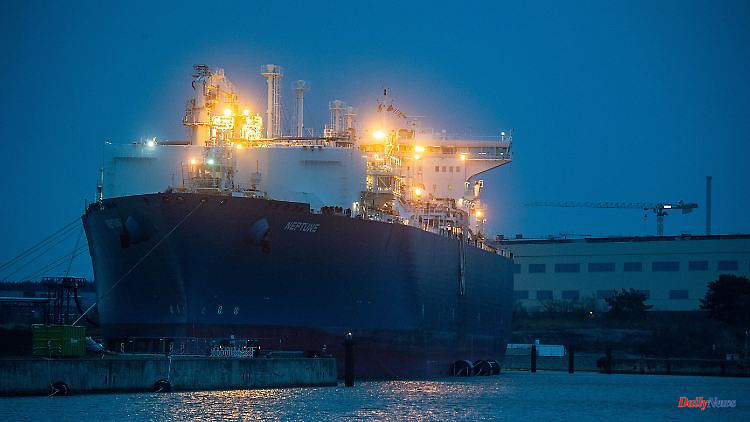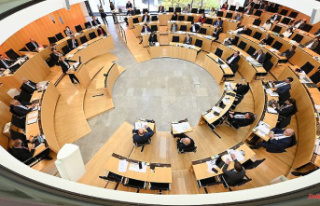The liquid gas plants in Lubmin and Wilhelmshaven are important building blocks for Germany's future energy security. They are not yet officially part of the critical infrastructure. Interior Minister Faeser wants to change that with a draft law.
Politicians from the Union and the Greens have called for more speed in protecting the new LNG terminals from hacker attacks and other forms of sabotage. "We know that these systems are risky. That's why it's important that they are now protected against hacking attacks," said Green Party Vice-Chairman Konstantin von Notz to the ZDF magazine "frontal".
"It is a mistake that the LNG terminals have not yet been protected," criticized foreign policy expert Roderich Kiesewetter. The federal government was apparently "taken by surprise by the speed of construction". During a visit to the Polish capital of Warsaw, Federal Interior Minister Nancy Faeser replied to the question when the new liquid gas terminals would be classified and protected as critical infrastructure: "First of all, my fellow interior ministers are already doing that in the federal states, they will be protected." In addition, the federal government is working flat out on a Kritis umbrella law.
Critical infrastructure (Kritis) includes facilities from the sectors of energy, transport, water, nutrition, state and administration, health, information technology and telecommunications - for example power plants and railway systems. In mid-January, Federal Chancellor Olaf Scholz officially opened the second floating terminal in Lubmin after the one in Wilhelmshaven, where tankers with liquefied natural gas (LNG) can land.
The law announced by Faeser aims to achieve better protection of the most important sectors. On December 7, the cabinet decided on key points. A spokeswoman for her ministry said on request: "Exploratory talks are currently taking place with the federal and state governments. The draft law will be drawn up as soon as possible."
Before the new law comes into force, however, the reporting regulations for disruptions to critical infrastructure will be expanded. A corresponding draft from the Federal Ministry of the Interior now also stipulates that the operators of liquefied natural gas terminals and the owners of landing stations for the connection of submarine cables to land-based telecommunications networks must report such incidents to the Federal Office for Information Security (BSI). "It can be expected that the corresponding amendment regulation will come into force shortly," the ministry said.












